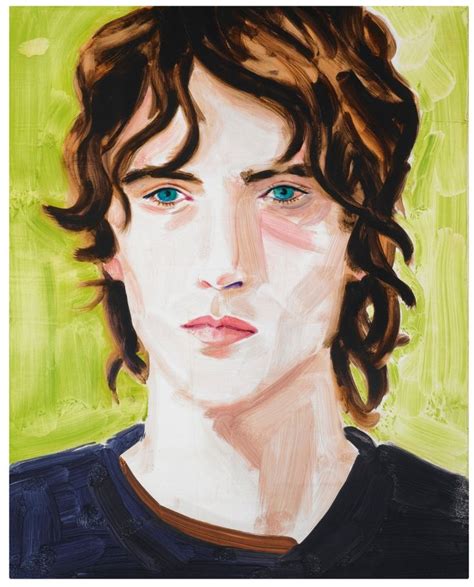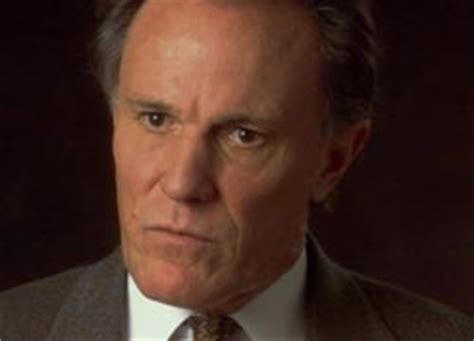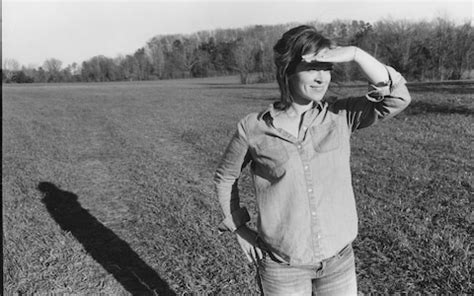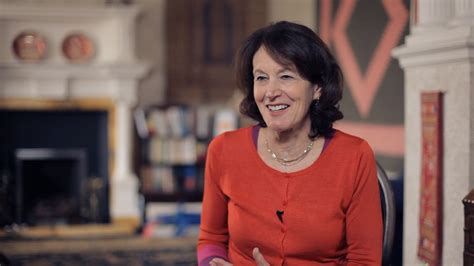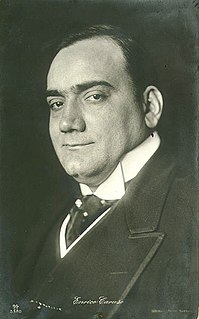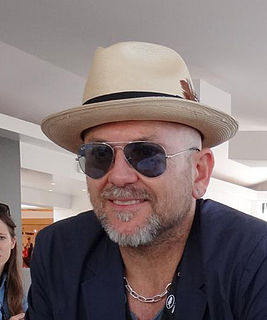Top 1178 Empathy Quotes & Sayings - Page 18
Explore popular Empathy quotes.
Last updated on April 19, 2025.
James, you are all the family I have. I would die for you. You know that. I would die without you. If it were not for you, I would be dead a hundred times over these past five years. I owe you everything, and if you cannot believe I have empathy, perhaps you might at least believe I know honor--honor, and debt--
Torture presupposes, it requires, it craves the abrogation of our capacity to imagine others suffering, dehumanizing them so much that their pain is not our pain. It demands this of the torturer, placing the victim outside and beyond any form of compassion or empathy, but also demands of everyone else the same distancing, the same numbness.
Marie Antoinette: The Portrait of an Average Woman was one of those books I read in my mid-twenties that was life-changing. I think I had a very black-and-white view of Marie Antoinette before, but in reading that book, I developed a lot of empathy for her. She was just caught up in history. There was no place for a woman to do anything at that time anyway.
When were you born, who are your parents, where did you grow up? None of us earns these things. These things were given to us. So when we strip away all of our luck and our privilege, and we consider where we'd be without them, it becomes much easier to see someone who's poor and say, "That could be me." And that's empathy.
My art and my self-expression in any form has always been an attempt towards sincerity, honesty, and empathy for others. For a multitude of reasons both professional and personal I no longer feel that this is possible within [Crystal Castles]. Although this is the end of the band, I hope my fans will embrace me as a solo artist in the same way they have embraced Crystal Castles.
Self-absorption in all its forms kills empathy, let alone compassion. When we focus on ourselves, our world contracts as our problems and preoccupations loom large. But when we focus on others, our world expands. Our own problems drift to the periphery of the mind and so seem smaller, and we increase our capacity for connection - or compassionate action.
In HEATHEN, R. Flowers Rivera remixes the classical and the Biblical, the usual and the typical until what we thought we knew of ourselves and others is new again. The mythic becomes particular; the particular becomes mythic in these fascinating poems of personalities and personas. Rivera’s work is rich in empathy and invention. Heathen is a book of psalms for the present day.
All the research shows that the presence of that phone will do two things to the conversation. It will make the conversation go to trivial matters, and it will decrease the amount of empathy that the two people in the conversation feel toward each other. That phone is a signal that either of us can put our attention elsewhere.
Are You Seeing Me? is written powerfully with both the heart and the head, and neither gives an inch. It's funny, moving and hugely insightful. Darren Groth puts the reader into the heads of Perry and Justine in a way that feels so true and so revealing that I think I've come away with a greater capacity for empathy. I didn't know a book could do that. We all need to spend some time inside this story.
I've argued that many of what philosophers call moral sentiments can be seen in other species. In chimpanzees and other animals, you see examples of sympathy, empathy, reciprocity, a willingness to follow social rules. Dogs are a good example of a species that have and obey social rules; that's why we like them so much, even though they're large carnivores.
Things would hurt me in a big way because I didn't seem to have a very thick layer of skin, but this also meant I had extreme empathy for other people. I think perhaps that's what makes my songs hit home for some people, because I've tried to see the world through their eyes and I recognise- even just for a second- that we all ultimately are struggling with the same things.
Take empathy, something added to human nature very recently and moving as we speak. Less than 300 years ago, Christians were enjoying watching a bear and dogs fight in a pit, racing Jews like horses, and had a life expectancy of less than 50 years. Today there are vegans who won't kill a fly, and yet wars too.
It's a time when a lot of principle virtues are being tested. Do we still believe in the truth? Do we still believe in empathy? Do we still believe the protection of the weakest among us? These are yes or no questions, but the means of communication is all tied up with those virtues and you can't abandon those virtues as you pursue them.
You’re like a god from a Greek myth, Saiman. You have no empathy. You have no concept of the world beyond your ego. Wanting something gives you an automatic right to obtain it by whatever means necessary with no regard to the damage it may do. I would be careful if I were you. Friends and objects of deities’ desires dropped like flies. In the end the gods always ended up miserable and alone." — Kate Daniels
Is there some meaning to this life?
What purpose lies behind the strife?
Whence do we come, where are we bound?
These cold questions echo and resound
through each day, each lonely night.
We long to find the splendid light
that will cast a revelatory beam
upon the meaning of the human dream.
Courage, love, friendship,
compassion, and empathy
lift us above the simple beasts
and define humanity.
The word 'heart' can refer to an emotional bond between people, and also to the precious faculty of empathy, an 'open heart', which means sharing the feelings of another and includes an outflow of goodwill towards our fellow humans and all life forms. This, of course, is what the Dalai Lama refers to when he says "my religion is kindness", and is closely related to the ability to feel compassion.
When I got the script to this movie, The Good Girl, I read it in an hour. The writer, Mike White, has an ability to create characters that are so creepy and dysfunctional and human, with this duality that makes people feel empathy for them at the same time. My first thought was 'Was this sent to the right person?' I called my agent. 'Are they sure? Let's say yes before they realize they've sent it to the wrong person!'
I think of moral beauty as what is the good and the just - terms perhaps best defined by their opposite: evil. Evil is the willingness to do damage to the other; its maximal expression is murder, but it includes a great deal of subtle and not-so-subtle injuries as it advances to that extreme. Evil acts reduce the other to an object, a being to its component parts, and obliterate subjectivity. Evil's breeding ground is a lack of empathy.
Throughout my career as a lawyer, teacher and labor leader, books have remained my constant companion - stuffed into a briefcase, overflowing on my bedside table, stacked on my desk at work. Books have carried me to distant worlds, opened new doors and made me feel empathy, compassion, anger, fear, joy, acceptance - and everything in between.
We often think that "bad" relationships are motivating by self-loathing or a wish for self-destruction, but I think that loving people who hurt us is more tied to a profound and earnest wish to soothe ourselves and recover from older hurts. And I've also found that having empathy for that urge is the best way to move through it, and beyond it.
Every time we watch a little story play out inside our head, we're fantasizing, whether we realize it or not, and it seems to me that, though succumbing to fantasies about other people can be dangerous or self-defeating, the act of fantasizing itself is also an essential part of being human, of being capable of both abstraction and empathy.
It seems to me that dominant cinema seems to require an empathy or a sympathy between the film and the audience which is basically to do with the manipulation of the emotions and it seems to me again -- and this is a very subjective position -- that most cinema seems to trivialise the emotions, sentimentalising or romanticising them.
I believe that it is only through empathy, that the pain experienced by an Algerian woman, a North Korean dissident, a Rwandan child or an Iraqi prisoner, becomes real to me and not just passing news. And it is at times like this when I ask myself, am I prepared - like Huck Finn - to give up Sunday school heaven for the kind of hell that Huck chose?
I want us to organize, to tell the personal stories that create empathy, which is the most revolutionary emotion. The truth of the mater is that hierarchy and violence can't be remedied by more hierarchy and violence. The end doesn't justify the means, the means we choose decide the end we get. The means are the end.
Stairway to Wisdom”) David Brooks detailed the needed ingredients to gaining a deep understanding of a social problem, beginning with the data and moving on to first-hand accounts. The highest rung on his stairway, though, went beyond those: “Empathy opens you up to absorb the good and the bad. Love impels you not just to observe but to seek union—to think as another thinks and feel as another feels.
Productive collaborations between family and school, therefore, will demand that parents and teachers recognize the critical importance of each other's participation in the life of the child. This mutuality of knowledge, understanding, and empathy comes not only with a recognition of the child as the central purpose for the collaboration but also with a recognition of the need to maintain roles and relationships with children that are comprehensive, dynamic, and differentiated.
The Internet is allowing for us to really experience people in some of the most distant places in the world - as other people just like us. So get to know people, seek out bloggers from a country you're kind of curious about. It's about building empathy and breaking through to the point of recognizing people as people.
During empathy one is simply 'there for' the other individual, when experiencing their own feelings while listening to the other, i.e. during sympathy, the listener pays attention to something about themselves, and is not 'there for' the client. Consider how you would feel if you sensed that the individual listening to you was getting into their own 'stuff' rather than hearing and reflecting exactly what you were feeling in a moment of need?
In the vast majority of movies, everything is done for the audience. We are cued to laugh or cry, be frightened or relieved; Hitchcock called the movies a machine for causing emotions in the audience. Bresson (and Ozu) take a different approach. They regard, and ask us to regard along with them, and to arrive at conclusions about their characters that are our own. This is the cinema of empathy.
Encouragement requires empathy and seeing the world from your spouse's perspective. We must first learn what is important to our spouse. Only then can we give encouragement. With verbal encouragement, we are trying to communicate, "I know. I care. I am with you. How can I help?" We are trying to show that we believe in him and in his abilities. We are giving credit and praise.
International educational exchange is the most significant current project designed to continue the process of humanizing mankind to the point, we would hope, that men can learn to live in peace-eventually even to cooperate in constructive activities rather than compete in a mindless contest of mutual destruction....We must try to expand the boundaries of human wisdom, empathy and perception, and there is no way of doing that except through education.
The writing life requires courage, patience, persistence, empathy, openness, and the ability to deal with rejection. It requires the willingness to be alone with oneself. To be gentle with oneself. To look at the world without blinders on. To observe and withstand what one sees. To be disciplined, and at the same time, take risks. To be willing to fail - not just once, but again and again, over the course of a lifetime.
In nonviolent communication, no matter what words others may use to express themselves, we simply listen for their observations, feelings, needs, and requests. Then we may wish to reflect back, paraphrasing what we have understood. We stay with empathy, allowing others the opportunity to fully express themselves before we turn our attention to solutions or requests for relief.
The root of compassion is not empathy; that is kindness. Kindness is great, but it is not the ultimate compassion. Ultimate compassion relieves the suffering that comes from separateness. The suffering that comes from separateness is relieved only when you are fully present with another person, not when you are separately present.
It is quite common to meet people that live a few kilometers away from Mexico and that have never been there. We need to revive on many levels an illustrious desire to get to know the world, to learn another language, to understand and create empathy with people that live a few kilometers away from us. It's never late to do this.
I'm not making excuses for the missed opportunities of the Israelis, or the lack of generosity, the lack of empathy that I think goes hand-in-hand with the suspicion. So, yes, there is more that the Israelis need to do to really demonstrate that they do understand the pain of an oppressed people in their minds, and they want to figure out, within the bounds of security and a Jewish democratic state, what can be accomplished.
When you create those characters that people love and care about and put them in a dark hallway, already the audience is on edge, and they feel empathy for that character. Then it's up to me to decide what jumps out in that hallway. So I think laying that foundation of strong characters and strong story is the most important thing in a horror film.
For me, it's common sense to treat other people like you would like to be treated. Empathy is a broad concept, but how do you get there? People get there differently. I get there by truly building a little trust and connection. You'll tell me something, I'll act on it, and then that builds on itself.
Kate Otto, like so many in her generation, is committed to being a good global citizen and doing her part to make the world a better place. Everyday Ambassador is a refreshing approach which encourages collaborative work with focus, empathy, humility and patience to better affect positive change in communities throughout the world.
A lot of people ask, "What do you pull on in your own life from your character?" In all honesty, it's not something that really works that way for me. I tend to look at these things as an imaginative process and a challenge of imagination and empathy, to some degree. I get much more out of meeting people who have lived these lives than I do digging around in my own limited experiences.
Photography is an investigation of both the outer and the inner worlds. The first experiences with the camera involve looking at the world beyond the lens, trusting the instrument will 'capture' something 'seen.' The terms shoot and take are not accidental; they represent an attitude of conquest and appropriation. Only when the photographer grows into perception and creative impulse does the term make define a condition of empathy between the external and the internal events.
Happiness doesn't lie in conspicuous consumption and the relentless amassing of useless crap. Happiness lies in the person sitting beside you and your ability to talk to them. Happiness is clear-headed human interaction and empathy. Happiness is home. And home is not a house-home is a mythological conceit. It is a state of mind. A place of communion and unconditional love. It is where, when you cross its threshold, you finally feel at peace.
She knows too well what it's like to tamp down your natural inclinations, to force a smile when you feel numb....The expression of emotion does not come naturally, so yo learn to fake it. To pretend. To display an empathy you don't really feel. And so it is that you learn to pass, if you're lucky, to look like everyone else, even though you're broken inside.
Regarding fiction, our concern shouldn't be the author's origin (and of course I am forgetting the sales people right here), because that is actually merely a simplified, almost insulting judgment of the book by its cover - or rather by the name and origin of its author - an act of discrimination if we want to say it in a more provoking way, but at the least an act of ignorance and false empathy.
As a child, I lived with being punier than other boys in class. The only consolation was my parents' empathy - they encouraged constant trips to the local drugstore for chocolate milk shakes to fatten me up. The shakes made me happy, but still, all through grammar school, other kids shoved me around.
Think of the horse as your partner.and it's all one great dance.
That's not to say it's always going to be easy or you won't have to work through issues.
But when a horse is troubled or uncomfortable in our world, rather than show contempt for him, you must demonstrate empathy and work to convince him that you mean him no harm.
You have some things that you'd like him to do 'with you', as opposed to 'for you'- and the best way to do that is as partners.
Recent breakthroughs in science show we have just the capacities we need to face our planet's challenges. We're "soft-wired" for cooperation, empathy, fairness, along with a deep need to "make a dent," as social philosopher Erich Fromm put it. My hunch is that one reason depression is a global pandemic is that the dominant mental map denies so many of us expression of these deep needs and capacities.
Out of the house and on my own, I faced the fact I didn't much like who I was. I didn't like my judgmentalism; I didn't like my absolutism. I didn't like my repression of natural empathy, my pinched lack of emotional generosity. How I had been thinking politically had less to do with what was wrong with the world and more to do with what was wrong with me, with my fears and insecurities, failings, weaknesses.
The earliest issue I can remember going through was body image issues. I was a chubby little kid and I got made fun of for it. I dealt with horrible, horrible self esteem issues, and I still struggle with that. I think it's what taught me a lot of empathy and compassion, though, but there are those days where I look in the mirror and I still see twelve year old fat Sara.



